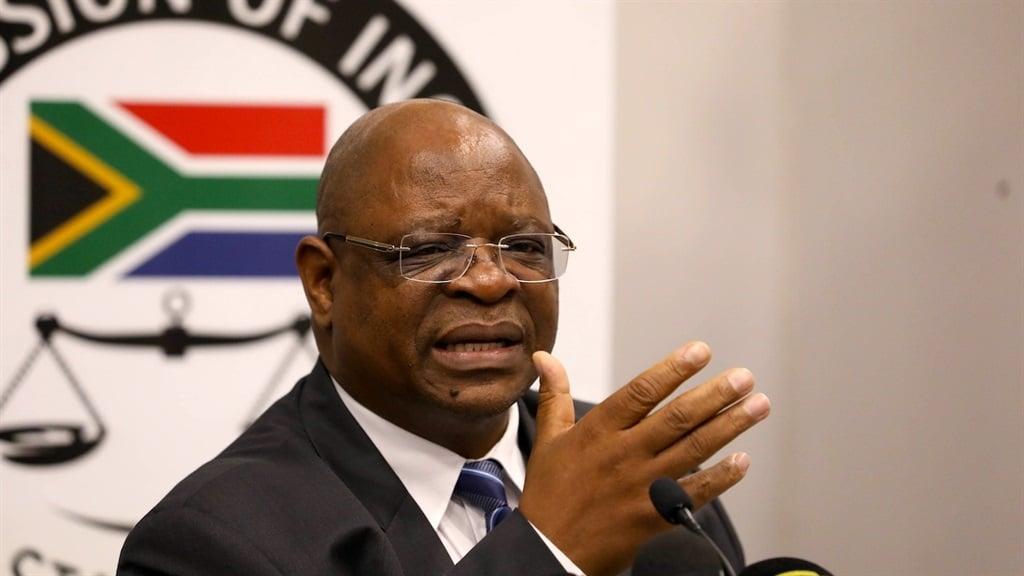Africa-Press – South-Africa. National Assembly Speaker Nosiviwe Mapisa-Nqakula and the chairperson of the National Council of Provinces, Amos Masondo, have formally requested an urgent meeting with Chief Justice Raymond Zondo about his remark that if state capture were to re-occur, Parliament wouldn’t be able to stop it.
Parliament expressed its shock and objection to this statement on Thursday, and said in a statement on Friday their requested meeting was “to clarify any potential misunderstandings and to establish a common understanding of the respective roles and responsibilities of each arm of government within the context of Parliament’s implementation of the commission’s recommendations”.
“This meeting is intended to address matters of concern between the judiciary and the legislature, specifically in relation to recent public statements made by the Chief Justice regarding Parliament’s role in the implementation of the Judicial Commission into State Capture, Corruption, and Fraud in the Public Sector, Including Organs of State,” said Parliamentary spokesperson Moloto Mothapo in a statement.
“Recognising the importance of maintaining a healthy working relationship between the judiciary and the legislature, the presiding officers have sought this meeting as a platform for constructive dialogue.”
He added that Mapisa-Nqakula and Masondo were “fully aware of their constitutional mandate and the need to collaborate and work harmoniously with the judiciary” and the meeting would be an important step towards strengthening the relationship between the judiciary and the legislature, “as well as fostering public trust and confidence in our democratic system”.
Addressing a Human Science Research Council symposium that analysed the state capture report’s impact on democracy on Thursday – a year to the day that the final instalment of the state capture report was released – Zondo defended his inquiry’s wide-ranging recommendations, which included the establishment of a commission to monitor state capture if Parliament failed in its legal duties.
Zondo asked:
In his report, Zondo had recommended safeguards to protect the country against state capture and lack of action by Parliament.
He said electoral reform to allow for a constituency-based system would give voters more power.
If public representatives, elected directly by constituencies, acted against the mandate given, they would be held accountable by those voters, Zondo said.
Zondo and the presiding officers will have much to talk about. Since the release of his report, the ANC has blocked any attempt to investigate the Phala Phala allegations against President Cyril Ramaphosa, using arguments Zondo dismissed in his report.
Parliament has also been sluggish in dealing with the report’s recommendations, and kicked the recommendation to establish a committee to oversee the Presidency into touch by insisting on a “study tour” to the UK, an idea mooted by Mapisa-Nqakula herself.
The person coordinating portfolio committees’ response to the Zondo recommendation, Chair of Chairs Cedric Frolick, was himself implicated in the report.
ANC MP and chairperson of the Portfolio Committee on Public Service and Administration, Tyotyo James, dismissed Zondo’s criticism of cadre deployment as unlawful and unconstitutional as follows: “Unfortunately, Judge Zondo is not governing on our behalf.”
On Friday morning, DA chief whip Siviwe Gwarube agreed with Zondo’s assessment that Parliament would be unable to prevent a recurrence of state capture.
“This is true,” she said.
“And the DA has long held that a working and effective Parliament is not in the interests of the ANC. The ANC in Parliament has blocked every attempt to reform its way of conducting business. They have treated the Zondo Commission’s report and its recommendations with disdain and keep reminding people that these are mere recommendations and the institution isn’t bound by them.”
She said the ANC had sought to shield those implicated by the commission from accountability and blankly refused to make any meaningful changes before the term was over.
For More News And Analysis About South-Africa Follow Africa-Press






